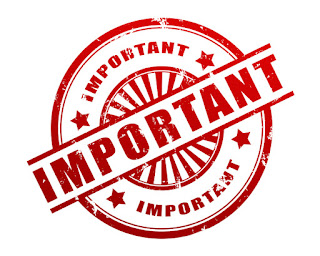Eight Important Interview Tips
It’s the opportunity you’ve been waiting for. After identifying the right places to search and submitting your resume for positions in your industry, you get the call for a job interview. Before you head off to this critical step in the hiring process, Kforce offers valuable advice you should remember when interviewing for jobs.
1. Research the Company
Before you leave for an interview, you should have a good understanding of the company you will meet with. Start with a simple online search or visit the company’s website. You should look for what the company does and become familiar with their products or services. Visions and values are also great topics to research before your interview. You may also score extra points in an interview if you are prepared to speak about the company’s community involvement or history in a particular market. Another tip is to think of questions the interviewer may ask you ahead of time and come up with clear-cut answers. If you have enough research and discussion points going into the interview, you are more likely to impress the hiring manager.
2. Dress for Success
It is always a good idea to plan out your attire the day before your interview. Even though many working environments may enlist a corporate casual style, you still want to dress professionally. For men, this means you will need to wear a suit. Ladies may also choose to wear a suit or other conservative attire, but keep the jewelry to a minimum. You want to make sure the focus is on what you are saying and not what you are wearing.
3. Be punctual
When preparing a day ahead for your interview, make sure your alarm is set to give you enough time to get ready and get to the interview on time. Take traffic and weather into consideration when you plan your commute to the interview site and aim to be there at least 15 minutes prior to the meeting time. Employers always appreciate candidates who arrive early. Plus, showing up on time will help you be more prepared and engaged once the shot clock starts for the interview.
4. Verbal Communication
From the moment you walk through the door for your interview, you should be polite, greet everyone you meet and treat them with respect. Once you are in the interview, keep that game plan in mind, but also make sure you come off with the right amount of confidence, energy and enthusiasm. You don’t want to use slang words or become too comfortable with your interviewer, but maintain a level of professionalism. Don’t forget the questions you prepared for when researching the company. At this point in the game, you should be able to provide the employer with direct answers. Additionally, when asked a question, listen carefully and don’t interrupt.
5. Non-verbal communication
Sometimes it isn’t just about what you say, but how you present yourself. Chewing gum, fidgeting, and slouching down in an interview are just a few things that will keep you from landing the job. Instead, be aware of how you are communicating with your body. Always keep a smile on your face and greet your interview with a firm handshake. Inside the meeting room, maintain good eye contact and posture to show the employer you are interested and engaged in the conversation.
6. Ask good questions
If you thought interviews were only based on employers asking you about your background and experience, you’d be wrong! An interview works both ways. You are interviewing the company as much as they are interviewing you. Consider asking the interviewer questions regarding the people, the company and the position.
If you meet with more than one interviewer, chances are each person will have a different role and viewpoint. Remember to ask each individual the same questions pertaining to their work environment and responsibilities. Getting a variety of answers helps you better understand your potential teammates and the company culture.
Interviewers may also take notice if you ask good questions surrounding the company’s history. Inquiring about how the company operates, what strategies they employ to land clients, or what types of software they use can also let the employer know you are interested in learning more about their business.
While it is important to know what the company does, you want to find out as much as you can about your duties, if selected for the job. Make sure you ask the interviewer what your day-to-day responsibilities would consist of and what qualities they would like the ideal candidate to have. The only topic to avoid is wages. Let the employer bring that up, or wait to address the issue if you are offered the job.
7. Be the true differentiator
You might not know how many candidates are in the running for the same job as you. However, you should try to do what you can to stand out from the crowd during your time with the interviewer. Whether that means asking quality questions or creating great chemistry during the interview, don’t miss an opportunity to leave an impression.
8. Leave with confidence
When it is all said and done, the interview is still not over. By crafting a brief closing statement for the interviewer you can help replay why you would be of value to the team. Politely ask the interviewer if there are any other questions they may have about your background, or if there is anything preventing them from considering you as a top candidate for the job. It is your last chance to clear up any misconceptions the interviewer may have about your skills and experience.
Before you leave the facility with a smile and a handshake, remember a few pieces of advice– get the interviewer’s business card, ask what the next steps are, and remind them of your interest in the position. These techniques may assist you in making it to the next step in the hiring process.











